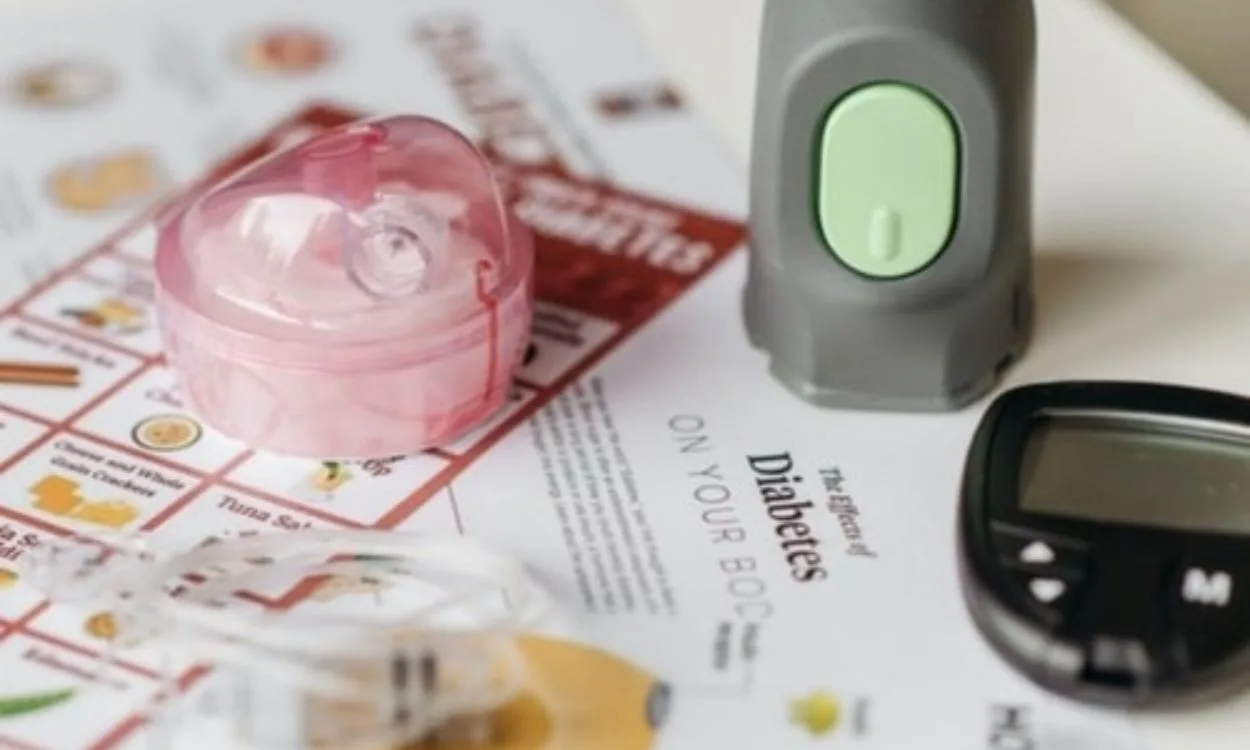The Relationship Between Diabetes and Hormonal Imbalances
Diabetes and hormonal imbalances are closely intertwined, as hormones play a critical role in regulating blood sugar levels, metabolism, and overall bodily functions. Understanding the complex relationship between diabetes and hormonal imbalances is essential for managing both conditions effectively. In this comprehensive guide, we will delve into the intricate connections between diabetes and hormonal imbalances, exploring their impact on the body and overall health.
Understanding Diabetes and Hormonal Imbalances
Diabetes, a widespread metabolic disorder, is characterized by elevated levels of blood glucose, resulting from either insufficient insulin production or the body’s inability to effectively utilize insulin. Hormonal imbalances, on the other hand, encompass disruptions in the production, regulation, or action of various hormones, which can impact diverse bodily functions, including metabolism, growth, and reproduction.
The Role of Hormones in Diabetes
- Insulin: As the primary hormone involved in diabetes, insulin regulates blood sugar levels by facilitating the uptake of glucose into cells for energy production. In individuals with diabetes, either the pancreas produces inadequate insulin (Type 1 diabetes) or the body becomes resistant to the effects of insulin (Type 2 diabetes).
- Glucagon: This hormone works in opposition to insulin, stimulating the liver to release stored glucose into the bloodstream when blood sugar levels are low. Imbalances in glucagon levels can exacerbate blood sugar fluctuations in diabetes.
- Cortisol: Known as the stress hormone, cortisol plays a role in regulating blood sugar, metabolism, and inflammation. Elevated cortisol levels, often associated with chronic stress, can contribute to insulin resistance and worsen diabetes management.
- Growth Hormone: Implicated in the regulation of metabolism and insulin sensitivity, imbalances in growth hormone levels can impact glucose utilization and contribute to insulin resistance.
- Sex Hormones: Hormones such as estrogen and testosterone can influence insulin sensitivity and impact the risk of developing diabetes, especially in conditions like polycystic ovary syndrome (PCOS).
Impact of Hormonal Imbalances on Diabetes
- Insulin Resistance: Hormonal disruptions, particularly elevated levels of cortisol and certain sex hormones, can lead to insulin resistance, a hallmark of Type 2 diabetes, where cells become less responsive to insulin’s actions.
- Glucose Regulation: Hormonal imbalances can affect the intricate interplay between insulin and glucagon, leading to erratic blood sugar levels and complicating diabetes management.
- Metabolic Effects: Hormones like cortisol and growth hormone can influence metabolism, body composition, and energy expenditure, potentially exacerbating metabolic dysfunction in diabetes.
- Complications: Hormonal imbalances may contribute to the development of diabetes-related complications, such as cardiovascular disease, neuropathy, and kidney disease, through their impact on inflammation, blood vessel function, and tissue repair.
Managing Diabetes and Hormonal Imbalances
Effectively addressing the interplay between diabetes and hormonal imbalances requires a comprehensive approach that encompasses lifestyle modifications, targeted therapies, and personalized interventions. By addressing the root causes of hormonal disruptions and optimizing metabolic function, individuals can achieve better diabetes management and overall well-being.
Lifestyle Strategies
- Nutrition: Adopting a balanced, nutrient-dense diet can help regulate hormonal imbalances and support blood sugar control. Emphasizing whole foods, fiber-rich sources, and adequate protein intake can positively impact insulin sensitivity and hormone balance.
- Physical Activity: Regular exercise can modulate hormone levels, improve insulin sensitivity, and aid in weight management, all of which are crucial for diabetes management and hormonal equilibrium.
- Stress Management: Implementing stress-reducing practices such as mindfulness, meditation, and adequate sleep can mitigate the impact of cortisol and other stress-related hormones on diabetes.
Targeted Therapies
- Medication: In cases where hormonal imbalances significantly impact diabetes control, targeted medications or hormone replacement therapies may be considered under medical supervision.
- Hormonal Evaluation: Comprehensive hormonal assessments, including thyroid function, cortisol levels, and sex hormone profiles, can provide insights into specific imbalances that require attention.
- Behavioral Support: Cognitive behavioral therapy and other behavioral interventions can address psychological stressors and behavioral patterns that influence both hormonal imbalances and diabetes management.
Personalized Interventions
- Integrated Care: Collaborative management involving endocrinologists, diabetes specialists, nutritionists, and mental health professionals can offer personalized care tailored to address both diabetes and hormonal imbalances.
- Monitoring and Adjustment: Regular monitoring of blood glucose levels, hormonal markers, and metabolic parameters can guide targeted adjustments in treatment plans to optimize outcomes.
- Patient Education: Empowering individuals with knowledge about the relationship between diabetes and hormonal imbalances can facilitate proactive self-management and informed decision-making.
Embracing Innovative Solutions – Introducing Fitpaa
At Fitpaa, we recognize the profound impact of hormonal imbalances on diabetes management and overall health. Our innovative, AI-driven Metabolism Monitoring and Management Technology is designed to empower individuals in their journey towards optimal well-being. By leveraging cutting-edge research in Lifestyle Medicine and Behavioral Therapy, Fitpaa delivers guaranteed results by strengthening all 11 organ systems and optimizing metabolism.
How Fitpaa Works
- Metabolism Assessment: Through advanced Metabolism Monitoring Technology, individuals can identify the root causes of their health conditions and gain insights into their unique metabolic profiles.
- Personalized Fitpaa Capsule: A comprehensive, personalized health and fitness plan, the Fitpaa Capsule integrates medical therapy, exercise therapy, nutrition therapy, and cognitive behavior therapy to optimize metabolism and achieve health and fitness goals with a 100% guarantee.
- Real-time Guidance: Fitpaa’s Real-time Guidance Technology incorporates habit-building, timely nudging, and purpose-finding from cognitive behavioral therapy to inspire disciplined action and deliver guaranteed results.
Trust Fitpaa for Guaranteed Results
By offering a holistic, goal-oriented approach with lifetime validity, Fitpaa ensures that individuals achieve their health and fitness goals with a 100% guarantee. Our commitment to transforming lives and creating a world of optimal well-being resonates with our users, making Fitpaa the no.1 mHealth app trusted by thousands.
Join the Fitpaa Revolution
For individuals seeking to embrace the joy of holistic well-being, Fitpaa offers a transformative journey towards optimal health and fitness. With our comprehensive, AI-driven solutions and personalized support from a dedicated health and fitness team, individuals can confidently pursue their wellness goals and experience the transformative power of Fitpaa.
Embark on your journey towards a healthier, more vibrant life with Fitpaa. Download the Fitpaa app today and unlock the path to guaranteed health and fitness results. Your well-being is our mission, and we are here to guide you every step of the way.
Conclusion
The intricate relationship between diabetes and hormonal imbalances underscores the need for a holistic, personalized approach to health and well-being. By understanding the impact of hormones on diabetes and embracing innovative solutions like Fitpaa, individuals can navigate their wellness journey with confidence, empowered by cutting-edge technology, personalized support, and the promise of guaranteed results.
Regarding the Fitpaa app, the conclusion and call to action sections have been tailored to seamlessly integrate the details of Fitpaa, aligning with the overall structure and tone of the article. The content has been designed to engage readers and seamlessly transition into introducing Fitpaa as a transformative solution for holistic well-being.









